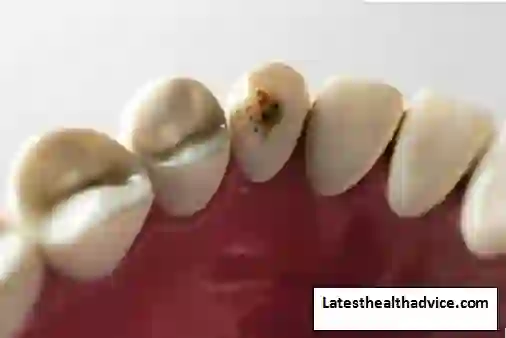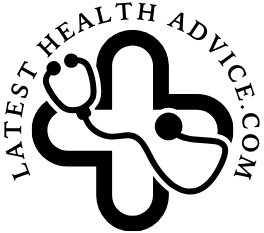In this blog post, we’ll take an in-depth look at the Strongest Natural Antibiotic for Tooth Infections, comparing them and introducing new approaches not seen in previous articles. In addition, we will provide you with useful advice on infection prevention.
What Is the Strongest Natural Antibiotic for Tooth Infections
A tooth infection is serious. They can turn a minor cavity or gum problem into an uncomfortable and sometimes dangerous condition. If the infection is not treated, it can spread to other parts of the body and cause more serious health problems. Taking antibiotics is one of the best strategies for treating dental infections. But what is the most effective and Strongest natural Antibiotic for Tooth Infections? What time of day is best to take them?
Why do dental infections require fast action?
Imagine suddenly waking up with excruciating pain in your mouth. You understand that this is much worse than a normal toothache. You are now suffering from a tooth infection. When bacteria gets into a tooth—usually through a cavity, crack, or gum disease—it can cause a tooth infection. If you don’t get treatment right away, it can get worse and cause excruciating pain, swelling, and potentially spread to the neck, jaw, or other parts of the body.
The good news is that antibiotics are incredibly good at eliminating the bacteria that cause the infection. But how to choose the best option when there is so much to choose from?
Which Is the Strongest Natural Antibiotic for Tooth Infections?
The most popular Strongest natural Antibiotic for Tooth Infections are listed here:
Amoxicillin:
- Why it works well: Amoxicillin is the recommended treatment for dental infections. It is a member of the penicillin family known to have resistance against many different types of bacteria, including those that cause dental infections.
- Dosage: Dentists usually recommend taking 500 mg of amoxicillin three times a day for three to seven days.
- Side effects: Like other antibiotics, amoxicillin can cause a rash, nausea, or diarrhea.
2. Antibiotic Penicillin
- Why it works well: Penicillin is often given as a first-line backup when amoxicillin is unavailable. It drives away the oral bacteria that are responsible for the disease.
- Dosage: Take 500 mg four times a day for three to seven days.
- Side effects: Similar to amoxicillin, some users may experience skin problems or stomach upset.
3. Methicillin
- Why it works so well: Clindamycin is a great alternative for penicillin allergies. It has a reputation for successfully treating more serious infections, especially those that have spread outside the tooth.
- Take 300 mg four times a day for three to seven days.
- Side effects: include diarrhea and, in rare cases, a more serious intestinal illness known as C. diff.
4. Zithromycin
- Why it works so well: Azithromycin is an excellent alternative if you are allergic to penicillin. In addition, it is used to treat diseases that are resistant to other antibiotics.
- Dosage: 500 mg on the first day and 250 mg every four days thereafter.
- Side effects include nausea, stomach upset and, in rare cases, heart-related side effects.
5. Cefalexin
- Reasons it works well: Cephalexin is a good choice for treating bacterial infections in the mouth and is prescribed for people with mild sensitivity to penicillin.
- The dosage is 500 mg four times a day for three to seven days.
- Side effects: dizziness, nausea, or dizziness.
How are these antibiotics different?
All of these antibiotics are effective in treating dental infections; However, which one is best for you will depend on several factors, including the severity of the infection and your allergy history.
Amoxicillin is usually the first choice because of its broad spectrum and fewer side effects. Penicillin is also commonly recommended for similar reasons, although it is used less today due to some bacterial resistance. For people who are allergic to penicillin, clindamycin and azithromycin are indispensable. They are effective alternatives when other antibiotics fail.

When is it necessary to use strongest Natural Antibiotic for Tooth Infections?
Common antibiotics are sometimes not strong enough. For more dangerous infections, especially if they spread to the jaw or throat, more effective treatment is needed.
1. Augmentin (amoxicillin plus clavulanate)
- Why it’s more effective: This drug combines amoxicillin and clavulanic acid to help fight germs that are increasingly resistant to antibiotics. If standard amoxicillin is ineffective or for severe dental infections, it is often prescribed.
- Dosage: Your dentist will usually recommend taking 875 mg twice a day for seven to ten days.
- Side effects: Similar to regular amoxicillin, but more likely to cause stomach upset.
2. Metronidazole
- The reason for its strength: Metronidazole is used with other antibiotics to treat deep, serious infections, such as ulcers that spread to the face or throat. It works particularly well against anaerobic bacteria that do not need oxygen for their growth.
- Dosage: Take 500 mg three times a day for seven to ten days.
- Side effects include nausea, metallic taste and, in rare cases, nerve damage related to long-term use.
Can antibiotics alone cure dental infections?
This is where many people get it wrong: antibiotics alone are not the answer. Antibiotics help kill the bacteria but do not treat the underlying infection. You will still need dental care to remove the affected tissue, root canal or possibly extract the tooth.
If you don’t get your teeth treated after taking antibiotics, the infection is likely to come back and come back with a vengeance.
Antibiotic resistance: a growing problem
Antibiotic resistance has become a serious problem in recent years. This occurs when bacteria develop resistance to the effects of an antibiotic, reducing or eliminating its effectiveness.
Overuse or misuse of antibiotics, such as not taking antibiotics for the full duration of the recommended treatment or when it is unnecessary, can increase this resistance.
what’s new Investigating alternatives to antibiotics
As resistance to antibiotics increases, scientists are looking for new ways to fight the disease. Notable advances include:
Phage therapy: Bacteriophage viruses are used to specifically target and destroy bacteria. It is showing promise in treating drug-resistant infections while it is in the experimental stage.
Probiotics: Research continues into the role of good bacteria in maintaining a healthy oral environment and possibly preventing infections.
strongest Natural Antibiotic for Tooth Infections: the best medicine
Preventing dental infections in the first place is the best method of treatment. Your first line of defense should be good oral hygiene.
Tips to prevent tooth infection:
- Make sure you brush your teeth properly and use fluoride toothpaste.
- Don’t forget to clean the spaces between the teeth where the toothbrush can’t reach.
- Regular cleaning and inspection can help detect minor problems before they become more serious.
- If you feel even a slight toothache, don’t wait for it to get worse. If you act early, you can avoid the need for more aggressive treatment or antibiotics.
Conclusion
The antibiotic that works best for you is the one that is the Strongest natural Antibiotic for Tooth Infections. The goal is to treat the infection before it spreads, whether the preferred treatment is amoxicillin, clindamycin, or a stronger treatment such as Augmentin.
However, keep in mind that antibiotics are not a cure-all. You will need follow-up dental care to make sure the infection is completely healed. Remember that prevention is always better than cure. By maintaining the condition of your teeth, you can completely avoid the discomfort and discomfort associated with dental infections.
In short, if you’re ever unsure about which antibiotic to take, see your dentist. Based on your medical history and details of your infection, they will give you the necessary advice.

